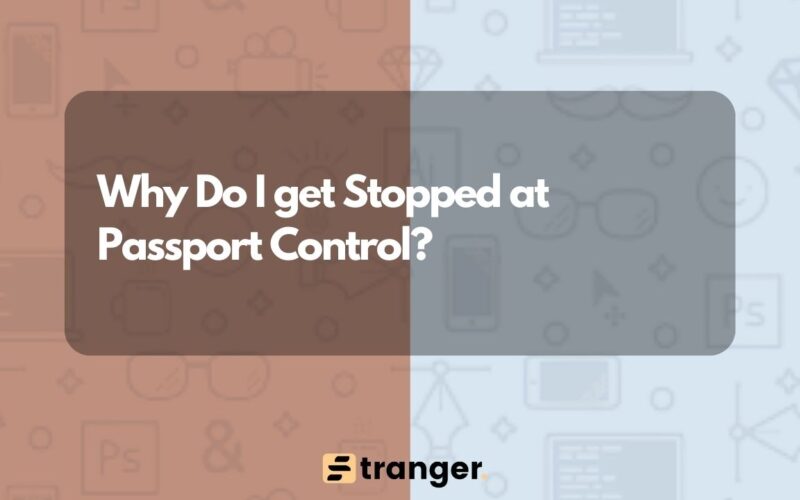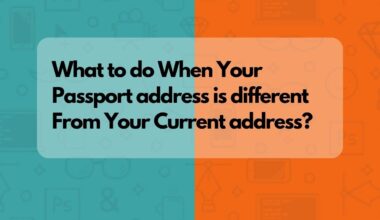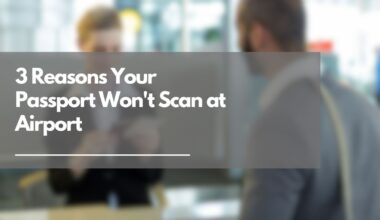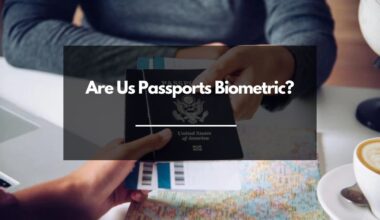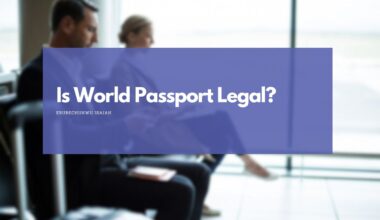As an Amazon Associate, I earn a small commission from qualifying purchases. Learn more about this.
You’re at the airport, passport in hand, but the officer stops you.
It’s a common scene, and it’s happened to me too.
Why does this happen? In this article, we’re going to look at the reasons behind these stops, using words that anyone can understand.”
The Basics of Passport Control
Passport control is like the front door of a country.
When you travel to a different country, passport control is the first place you stop after getting off the plane.
Here, officers check your passport and other travel papers to make sure everything is okay. It’s their job to make sure that everyone coming into the country should be there.
Think of these officers as the people who guard the door.
They look at each person’s passport to check who they are.
They also make sure the passport is real and not fake. Sometimes, they ask questions like “Why are you visiting our country?” or “How long will you stay?”
This is normal and helps them understand your visit.
At passport control, they might also look at your face and compare it to the photo in your passport. This is to make sure the person in the passport and the person standing in front of them are the same.
This process is important for the safety of the country
Why Do I Get Stopped at Passport Control?
Getting stopped at passport control can happen for a few reasons.
It’s part of how countries keep their borders safe and make sure that the right people come in.
- Routine Checks: Sometimes, it’s your turn to be checked more. Officers at airports often pick people by chance for extra checks. It’s like drawing straws. You might just be the one they pick. This is normal and helps keep the airport safe for everyone.
- Problems with Documents: If there’s a mistake in your passport or visa, or if a page is torn or missing, the officers will need to look at it more closely. They check to make sure all your papers are correct and up to date.
- You Look Different: If you don’t look like your passport photo, maybe because you’ve gotten older or changed your hairstyle, the officers might need more time to make sure you are who your passport says you are.
- Your Travel History: If you’ve been to certain places that make the officers worried about safety, they might ask you more questions. They do this to understand why you went there and what you did.
- Your Name Matches Someone Else: Sometimes, your name might be the same as someone who is not allowed to travel. The officers need to check to make sure you are not that person.
- Carrying Certain Items: If you have things in your bags that you’re not supposed to bring, like certain foods or lots of money, the officers will want to ask you about these.
Most times, being stopped is just a normal part of traveling.
The officers are there to ask questions and check things to keep the country safe.
They’re not just looking at you, but doing this with many people every day.
If you have the right papers and answer their questions, you’ll usually be on your way quickly.
How to Make the Process Smoother
Going through passport control can be quick and easy if you know what to do. Here are some tips to help you get through without any trouble.
Be Ready with Your Documents: Just like when you’re ready to cook a meal and you lay out all your ingredients, have your passport and any other papers you need, like a visa, ready in your hand. This helps the officer quickly see what they need and saves time. Make sure your passport is open to the photo page. If you need a landing card, fill it out on the plane before you land.
Stay Calm and Friendly: Think of this like meeting someone new. Smile and be polite. If the officer asks you questions, answer them in a calm way. They might ask why you’re visiting, where you’ll stay, or how long you’ll be there. These are standard questions. Answering them clearly helps the officer do their job faster.
Know What You Can Bring: Before you travel, look up what you can and can’t bring into the country. Different places have different rules about things like food, plants, or medicine. If you know these rules, you can avoid problems. If you’re not sure about something you have, tell the officer. It’s better to ask than to have a problem later.
Dress and Act Appropriately: When you meet the officers, it’s like showing that you respect their country. Wear clothes that are comfortable but not too casual. Don’t wear sunglasses or hats as they can make it hard to see if you look like your passport photo. Also, avoid using your phone while talking to the officer. This shows them you’re taking the process seriously.
Understand and Accept Delays: Sometimes, things take time. There might be many people or the officers might be doing extra checks. Remember, everyone is waiting, just like you. Use this time to relax a bit, think about your trip, or just watch the people around you. Getting upset won’t make things go faster.
When Things Don’t Go Smoothly
Sometimes, even when you do everything right, you might face problems at passport control.
Maybe the officers need more time to check your papers, or they have questions about your trip.
It can feel scary or frustrating, but remember, this happens to many people and usually, it gets sorted out.
If you find yourself in a situation where things aren’t going as planned, the best thing to do is stay calm.
Think of it like a small bump in the road on a long journey.
The officers are doing their job, and it’s important for them to be thorough.
If they need to ask extra questions or do more checks, it’s not because they think you did something wrong. They are just making sure everything is safe and correct.
It’s okay to ask questions if you don’t understand what’s happening. Say things like, “Can you please explain why this is needed?” or “What should I do next?”
This shows that you’re cooperating and want to understand the process.
If you feel that things are not fair, you can ask to speak with a supervisor. Remember, being polite and patient can help a lot in these situations.
If, for some reason, they tell you that you can’t enter the country, don’t panic.
Ask them to explain why and what you can do about it. There’s often a way to fix the problem, like getting the right paper or coming back another day.
What If You Feel Unfairly Treated?
Sometimes, you might feel that the officers at passport control are not treating you right.
Maybe you think they are asking too many questions or not being nice. It’s okay to feel this way, but it’s important to handle the situation calmly.
If this happens, the first thing to do is stay polite.
Even if you’re upset, showing respect can help.
You can say something like, “I’m not sure why this is happening, can you please explain?” This shows you want to understand and solve the problem.
If you still think things are not fair, you can ask to talk to a higher-up person, like a supervisor.
They have more experience and can look into your situation more deeply. Tell them clearly why you feel unfairly treated, but keep your words respectful.
Remember, everyone at the airport has a job to do.
Sometimes they have to be extra careful. If you feel unfairly treated, speaking up in a polite way can help. This way, you can get more information and maybe solve the problem faster.
Conclusion
Getting stopped at passport control can be a bit unsettling, but it’s usually just a routine part of international travel. By understanding the reasons behind these stops and knowing how to prepare, you can make your journey smoother.
